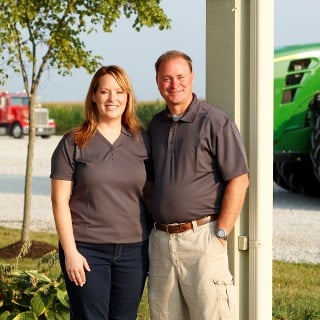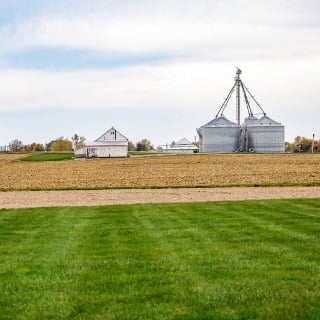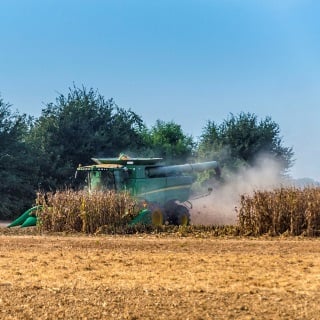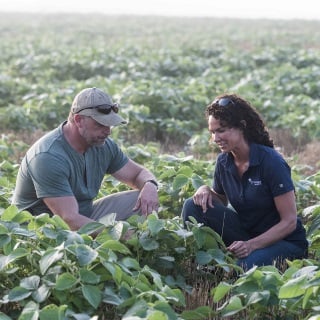Agriculture is in a state of flux. With suppressed commodity prices and shifting land values across the country, even well-established U.S. farmers are tightening their belts and figuring out how to weather the storm. The challenging ag economy can quickly take a toll on young and beginning farmers. Becoming a farmer—whether taking over the family farm or starting out on your own—has never been easy, but coupled with difficult economic conditions, it’s harder than ever for young farmers to get their feet in the field.
Many farmers under the age of 35 recognize that one of the best ways to increase their chances of success is by increasing the breadth of their agricultural knowledge. The way Dad or Grandpa did something may no longer be a viable option under today’s unique conditions. For many young farmers, this has meant pursuing a college education. Farmers today are far more likely to hold a higher educational degree than farmers 25 years ago. According to the 2011 United States Department of Agriculture census, nearly a quarter of farmers hold college degrees—an indication of both the increased need for a job off the farm and how the profession is changing.
“A lot of younger farmers are going to school to learn areas of specialty they believe will help their operation be successful, whether that’s agronomy or animal science or economics. They are seeking a strong foundation in one or two topics,” says Michael Langemeier, Ph.D., an agricultural economist at Purdue University. “Even if you aren’t an expert in one aspect of the business, you have to know enough to hire the right person when the time comes.”
More knowledge, better vision
While younger farmers continue to specialize, agriculture as a whole continues to rapidly expand. With evolving technology and discussions surrounding topics like sustainability and constant policy change, the industry demands farmers know a little bit about everything just to keep up. More agricultural businesses recognize this increased need for farmers to be jacks of all trades. In addition to independent farming exchange programs that pair farmers from other countries to learn from each another, many agricultural media companies and other entities are starting to add educational programming targeted specifically at farmers under 35. The sessions bring in experts from across the United States to give young farmers opportunities to meet other farmers, talk about their operations, and share their challenges and plans for growth.
It’s easy for Quint Pottinger to see how attending conferences could contribute to his success. He farms corn and soybeans on his family’s eight-generation operation in central Kentucky, and he attended the Farm Credit Mid-America Know to Grow conference in Nashville, Tenn., in August 2016. Farm Credit Mid-America holds four Know to Grow conferences each year throughout its four-state region to help under-35 customers take a deeper dive into the financial details of their operations.
“Any time I can take to educate myself, whether it’s a financial conference, a commodity conference or a trade conference, I will take it,” says Pottinger. “I attended Know to Grow to become a better financial steward. If we’re going to feed the world, we need to make sure our businesses are sound.”
As a rule, farmers excel at day-to-day operational needs of their farms, but many find the complicated finances and regulations involved with running an ag business can be hard to grasp. Many farmers are hesitant to discuss their financial situations, which makes finding valuable advice and learning opportunities even more challenging. It’s a big request to ask farmers to spend a day or two away from their operations, but one that Langemeier believes will pay off as increased understanding of their finances will lead to better informed decision-making for their business.
“Most farmers don’t have a background in strategic planning. Workshops like Know to Grow give them the opportunity and time to learn how to build a strategy,” says Langemeier. “It’s like anything else: We get so caught up in day-to-day management that we don’t have time to think about and pursue our vision.”
Education means opportunity
The Know to Grow conference series covers topics ranging from how to create effective financial statements to developing a strong competitive advantage. The two-day conference is packed full of information provided by experts from Purdue University, the University of Nebraska and Farm Credit Mid-America. Farmers often walk in with gaps in their technical financial knowledge, but leave with new insights. During the Nashville session this year, attendees were asked if they knew the difference between current and non-current assets. At the beginning of the conference, there were more than a few puzzled looks and head scratches. But, by the end of the day, many farmers listed understanding these two terms as a key takeaway from their sessions.
Conference attendees were also asked to do more than listen. Throughout the day, they were prompted to write on chalkboards around the room, sharing everything from their goals for the next two days to how many hours they drove to attend Know to Grow. They talked about their dreams for the future of agriculture, including automation, consumer education and more young farmer success.
Pottinger is quick to cite the peer-to-peer connections at the conference as another key way farmers can continue their education. “It takes every piece of the puzzle to make your operation work. Whether that piece is a new tractor, a conference or a new person you meet. We all have to work together to advance food production.”
“Today’s economy is challenging, particularly for younger farmers and new producers. Starting out when things are little rough can sometimes be better, since the worst time to start is when the economy is at its peak,” says Langemeier. “But the truth is that agriculture today is challenging for anyone because there is so much you have to know. You really have to be a lifelong learner.”






